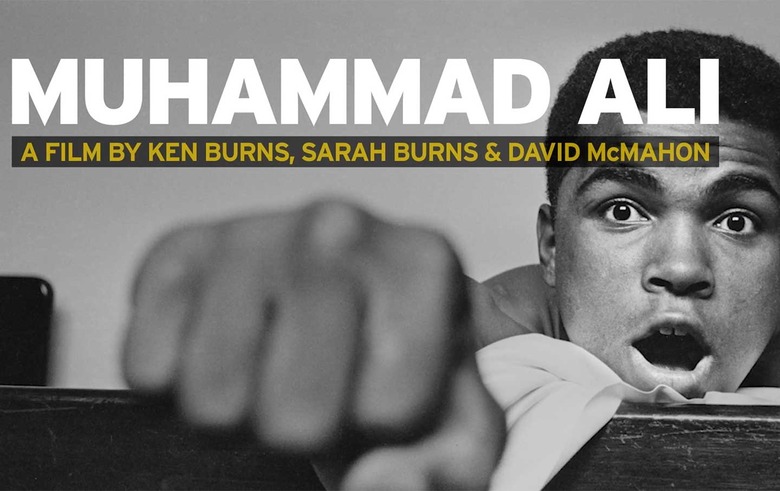Director Ken Burns Promotes 'Muhammad Ali' Docuseries, Responds To Criticism Of Diversity
Ken Burns has made a name for himself as one of the most celebrated, award-winning documentarians of our time. I can say with great affection that I've fallen asleep to many a late-night PBS documentary special as he tackled such endearing "Dad topics" like the Civil War or baseball. For his latest project, Burns has his eyes set on legendary boxer Muhammad Ali ... but it's not without a certain amount of controversy, as well.
PBS held a recent presentation, which included some choice insights on Burns' currently in-production Muhammad Ali. The documentary series will consist of four parts and eight total hours, airing consecutively on four nights. Burns directed the series with his daughter Sarah Burns and son-in-law David McMahon, which helps explain where some of the ill feelings towards this particular project stem from. Along those lines, Burns describes the docuseries as a unique and "comprehensive" take on the iconic public figure.
"We were interested in doing a pretty comprehensive look at his life, from his birth in segregated Louisville, Kentucky in the early '40s to his death by Parkinson's not too long ago, in 2016. That meant involving ourselves in lots of other intersections of this extraordinary life, in politics, in war, in civil rights, in faith and religion, in the definition of Blackness in the country. All sorts of very complicated subjects—his personal life, the four wives."
Yeah, can you see where things might start to get a little messy here?
Who Gets To Tell Whose Stories?
For some context, PBS came under fire earlier this year over allegations that prioritizing their relationship with Burns to such an extent (according to PBS' own website, their collaboration with Burns began over 40 years ago and his exclusive deal with them lasts at least through 2022) leaves no room to diversify the stable of other talent that PBS chooses to work with. The open letter, signed by well over 100 other documentary filmmakers (and well worth reading in its entirety), acknowledges that the company has made an effort to seek out new filmmakers of color while also pointing out the troublesome implication that there are no well-established individuals to work with.
In response to that prior complaint, Burns went out of his way to note that despite the three white directors on the Muhammad Ali series (himself included), "40-percent of the nucleus of our crew—producers, editors, assistant editors, directors, writers, are people of color; 53-percent are women." While referencing PBS' initiatives to find diverse voices, Burns goes on to say:
"I certainly applaud PBS for the steps they've taken, for the guidelines. A lot of it puts the onus back onto us filmmakers and we readily accept it. We will take this on and we will figure out how to make it right and do a better job. I personally commit to that. I know my colleagues will do that. I know my network has already done that and put their money where their mouth has been... This is a really good way forward for a network that was always representing, from the very beginning, for the last 50 years, always representing... always asking for a multiplicity of perspectives."
"We've never said that [Muhammad Ali] was definitive and I think the point is that we want to have many, many points of view. I'm in a business of history and that includes everyone. And I have, throughout my professional life, tried to tell the story of this country in an inclusive way and that means talking about race and trying to tell stories from multiple perspectives... But I do not accept that only people of a particular background can tell certain stories about our past, particularly in the United States of America."
Nothing Burns says here is wrong, per say, though it does point to a disconcerting interpretation of the term, "inclusivity." Burns is a wildly talented, successful storyteller with the ability to lend a human touch to any subject he approaches. At the same time, a massive Burns-led Muhammed Ali production necessarily means that any filmmaker of color who wanted to retell that story through their own lens would have a much lower chance to do so. There's a well-established history of filmmakers choosing to become the author of stories far outside their own personal, lived-in experiences to extremely uneven results.
None of this is to condemn Ken Burns or his upcoming docuseries outright, but it's definitely worth thinking about. Muhammed Ali premieres on PBS on September 19, 2021.

